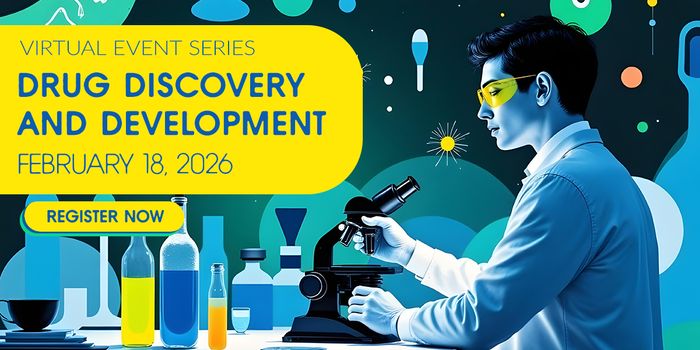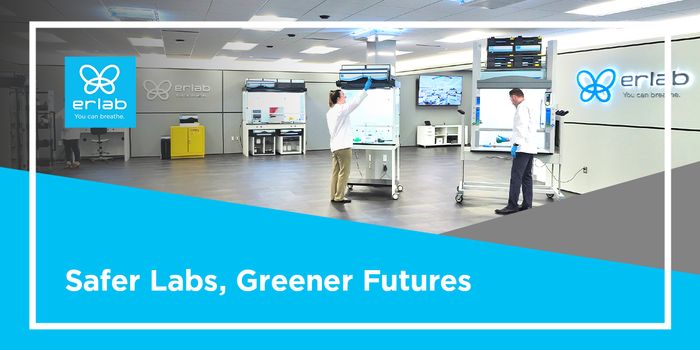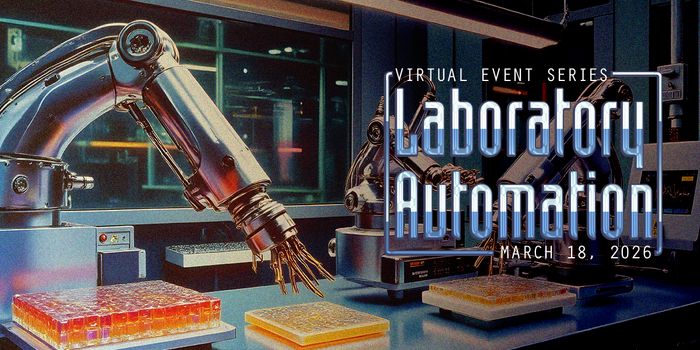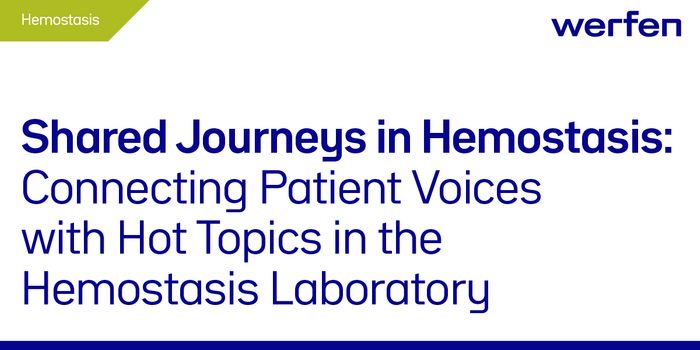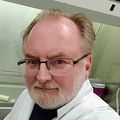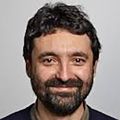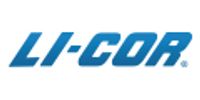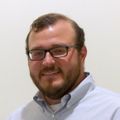Cell Biology Virtual Event Series 2020
Labroots and the Cell Biology Planning Committee are pleased to announce the 4th Annual Event in the Cell Biology Virtual Event Series, providing an opportunity to discuss recent discoveries in biological research, advancements in techniques, and tool developments in cell research.
Cell Biology 2020 Virtual Event will continue to create a valuable platform for inspiring global and interdisciplinary collaboration in a virtual environment, to study cells – their physiological properties, structure, the organelles they contain, environmental interactions, life cycle, division and death, on a microscopic and molecular level.
This years event will include the following tracks and topics:
- Organelle Dynamics
- Cell Biology of Cancer
- Spatial Omics
- Extra Cellular Matrices
- Exosomes
Our virtual conference allows you to participate in a global setting with no travel or cost to you. The event will remain open 6 months from the date of the live event. The webinars will be available for unlimited on-demand viewing. This virtual conference also offers increased reach for the global microbiology community with a high degree of interaction through live-streaming video and chat sessions.
Like the 2019 conference, this event will be produced on our robust platform, allowing you to watch, learn and connect seamlessly across all desktop or mobile devices. Equipped with gamification and point system, you can now move around the entire event, earning points for a chance to win one of LabRoots' most popular T-shirts.

Call for Posters — Virtual poster sessions offer the opportunity to present data to a global audience via a PDF poster and video summary, and discuss results with interested colleagues through email. Plan now to have your poster included in the 2020 Cell Biology Virtual Event. Submission is free. Submit your abstract here.
Continuing Education
LabRoots is approved as a provider of continuing education programs in the clinical laboratory sciences by the ASCLS P.A.C.E. ® Program. By attending this event, you can earn 1 Continuing Education credit per presentation for a maximum of 30 credits.
Use #LRcellbio to follow the conversation!
Agenda Share
-
SEP 23, 2020 4:30 PM PDT
Anatomy of a nucleic acid sample preparation
Katherine Mechling
Scientist II, Technology Development, Molecular Workflow Tools, MilliporeSigmaBIOGRAPHYSponsored By: MilliporeSigma -
SEP 23, 2020 1:30 PM PDT
Keynote Presentation: Starting at the source: tissue extracellular vesicles and Alzheimer's disease
Kenneth W. Witwer, PhD
Associate Professor, Molecular and Comparative Pathobiology, John Hopkins University School of MedicineBIOGRAPHY -
SEP 23, 2020 12:00 PM PDT
Keynote Presentation: Sorting out the mechanisms of endocytic recycling
Steve Caplan, PhD
Professor and Vice Chair for Administration, Dept. of Biochemistry and Molecular Biology, Director, UNMC Advanced Microscopy Core Facility, Research Institute-Program CoordinatorBIOGRAPHY -
SEP 23, 2020 10:30 AM PDT
iPSC- and patient- derived intestinal organoids for gastrointestinal research
-
SEP 23, 2020 9:00 AM PDT
Keynote Presentation: Extracellular vesicles in Regenerative Medicine
Benedetta Bussolati, MD, PhD
Associate Professor of Nephrology, University of Torino, President of the Italian Society for Extracellular Vesicles - EVIta, Dept. of Molecular Biotechnology and Health SciencesBIOGRAPHY -
SEP 23, 2020 7:30 AM PDT
Cell Culture Troubleshooting Tips and Tricks
Marina Wiklander, PhD
Field Marketing Specialist, Research and Applied Lab Solutions Western Europe, Merck KGaA, Darmstadt, GermanyBIOGRAPHYSponsored By: MilliporeSigma -
SEP 23, 2020 6:00 AM PDT
Keynote Presentation: MicroRNAs in Extracellular Vesicles orchestrate the biology of the Tumor Microenvironment
Muller Fabbri, MD, PhD
Associate Professor, Co-Leader Cancer Biology Program, University of Hawai'i Cancer CenterBIOGRAPHY -
Deep learning to integrate histology with spatial transcriptomics
-
Extracellular Matrix in Renal Development and Cancer
Astgik Petrosyan, PhD
Senior Postdoctoral Research Fellow, GOFARR Laboratory for Organ Regenerative Research and Cell Therapeutics in Urology, Children's Hospital Los AngelesBIOGRAPHY -
Extracellular Vesicles and Chronic Kidney Disease
Sargis Sedrakyan, PhD
Assistant Professor of Urology, Children's Hospital Los Angeles; Keck School of Medicine, University of Southern CaliforniaBIOGRAPHY -
GeoMx Digital Spatial Profiling read-out for Next-Generation Sequencers with the Cancer Transcriptome Atlas (CTA)
-
The role of Nox-derived Reactive Oxygen Species in Axonal Growth and Guidance
Daniel M. Suter, PhD
Professor of Biological Sciences, Department of Biological Sciences, Purdue UniversityBIOGRAPHY -
Transcriptomic signature : a spatially resolved analysis of the nephron structures in chronic kidney disease
Paolo Cravedi, MD, PhD
Associate Professor, Division of Nephrology, Icahn School of Medicine at Mount SinaiBIOGRAPHY
- Exosomes
-
Extracellular Vesicles and Chronic Kidney Disease
Sargis Sedrakyan, PhD
Assistant Professor of Urology, Children's Hospital Los Angeles; Keck School of Medicine, University of Southern CaliforniaBIOGRAPHY -
SEP 23, 2020 6:00 AM PDT
Keynote Presentation: MicroRNAs in Extracellular Vesicles orchestrate the biology of the Tumor Microenvironment
Muller Fabbri, MD, PhD
Associate Professor, Co-Leader Cancer Biology Program, University of Hawai'i Cancer CenterBIOGRAPHY -
SEP 23, 2020 9:00 AM PDT
Keynote Presentation: Extracellular vesicles in Regenerative Medicine
Benedetta Bussolati, MD, PhD
Associate Professor of Nephrology, University of Torino, President of the Italian Society for Extracellular Vesicles - EVIta, Dept. of Molecular Biotechnology and Health SciencesBIOGRAPHY -
SEP 23, 2020 1:30 PM PDT
Keynote Presentation: Starting at the source: tissue extracellular vesicles and Alzheimer's disease
Kenneth W. Witwer, PhD
Associate Professor, Molecular and Comparative Pathobiology, John Hopkins University School of MedicineBIOGRAPHY - Extra Cellular Matrices
-
Extracellular Matrix in Renal Development and Cancer
Astgik Petrosyan, PhD
Senior Postdoctoral Research Fellow, GOFARR Laboratory for Organ Regenerative Research and Cell Therapeutics in Urology, Children's Hospital Los AngelesBIOGRAPHY - Cell Biology of Cancer
-
GeoMx Digital Spatial Profiling read-out for Next-Generation Sequencers with the Cancer Transcriptome Atlas (CTA)
-
Deep learning to integrate histology with spatial transcriptomics
-
Transcriptomic signature : a spatially resolved analysis of the nephron structures in chronic kidney disease
Paolo Cravedi, MD, PhD
Associate Professor, Division of Nephrology, Icahn School of Medicine at Mount SinaiBIOGRAPHY -
SEP 23, 2020 7:30 AM PDT
Cell Culture Troubleshooting Tips and Tricks
Marina Wiklander, PhD
Field Marketing Specialist, Research and Applied Lab Solutions Western Europe, Merck KGaA, Darmstadt, GermanyBIOGRAPHYSponsored By: MilliporeSigma -
SEP 23, 2020 10:30 AM PDT
iPSC- and patient- derived intestinal organoids for gastrointestinal research
-
SEP 23, 2020 4:30 PM PDT
Anatomy of a nucleic acid sample preparation
Katherine Mechling
Scientist II, Technology Development, Molecular Workflow Tools, MilliporeSigmaBIOGRAPHYSponsored By: MilliporeSigma - Organelle Dynamics
-
The role of Nox-derived Reactive Oxygen Species in Axonal Growth and Guidance
Daniel M. Suter, PhD
Professor of Biological Sciences, Department of Biological Sciences, Purdue UniversityBIOGRAPHY -
SEP 23, 2020 12:00 PM PDT
Keynote Presentation: Sorting out the mechanisms of endocytic recycling
Steve Caplan, PhD
Professor and Vice Chair for Administration, Dept. of Biochemistry and Molecular Biology, Director, UNMC Advanced Microscopy Core Facility, Research Institute-Program CoordinatorBIOGRAPHY
Speakers Share
-
Benedetta Bussolati, MD, PhD
Associate Professor of Nephrology, University of Torino, President of the Italian Society for Extracellular Vesicles - EVIta, Dept. of Molecular Biotechnology and Health Sciences
BIOGRAPHY
-
John J.S. Cadwell
President and CEO, FiberCell Systems, Inc.
BIOGRAPHY
-
Steve Caplan, PhD
Professor and Vice Chair for Administration, Dept. of Biochemistry and Molecular Biology, Director, UNMC Advanced Microscopy Core Facility, Research Institute-Program Coordinator
BIOGRAPHY
-
Paolo Cravedi, MD, PhD
Associate Professor, Division of Nephrology, Icahn School of Medicine at Mount Sinai
BIOGRAPHY
-
Hakim Djaballah, PhD
CEO, Keren Therapeutics
BIOGRAPHY
-
Muller Fabbri, MD, PhD
Associate Professor, Co-Leader Cancer Biology Program, University of Hawai'i Cancer Center
BIOGRAPHY
-
Kit Fuhrman
GeoMx Digital Spatial Profiler Product Manager - RNA Assays, Nanostring
BIOGRAPHY
-
Katherine Mechling
Scientist II, Technology Development, Molecular Workflow Tools, MilliporeSigma
BIOGRAPHY
-
Jun Park, PhD
Senior Scientist, MilliporeSigma
BIOGRAPHY
-
Astgik Petrosyan, PhD
Senior Postdoctoral Research Fellow, GOFARR Laboratory for Organ Regenerative Research and Cell Therapeutics in Urology, Children's Hospital Los Angeles
BIOGRAPHY
-
Sargis Sedrakyan, PhD
Assistant Professor of Urology, Children's Hospital Los Angeles; Keck School of Medicine, University of Southern California
BIOGRAPHY
-
Kevin Su
Research Scientist, MilliporeSigma Research and Development
BIOGRAPHY
-
Daniel M. Suter, PhD
Professor of Biological Sciences, Department of Biological Sciences, Purdue University
BIOGRAPHY
-
Jim West III, MS, CEO
Clara Biotech
BIOGRAPHY
-
Marina Wiklander, PhD
Field Marketing Specialist, Research and Applied Lab Solutions Western Europe, Merck KGaA, Darmstadt, Germany
BIOGRAPHY
-
Kenneth W. Witwer, PhD
Associate Professor, Molecular and Comparative Pathobiology, John Hopkins University School of Medicine
BIOGRAPHY
-
James Zou
Assistant Professor, Stanford University and Chan-Zuckerberg Investigator
BIOGRAPHY
-
Sony Biotechnology
Sony Biotechnology Inc. is dedicated to helping researchers working across different life science disciplines to achieve the best scientific results. By leveraging Sony's vast know-how in electronics innovation and design we offer next-generation cell analysis systems to ...
See more -
LI-COR Biosciences
LI-COR first introduced scientific instruments for plant science research and quickly grew to provide scientists tools for such diverse disciplines as atmospheric research and the study of how proteins interact at the cellular level. LI-COR Biosciences is a global leader in the ...
See more -
ManuscriptEdit
Manuscriptedit specializes in providing services in Scientific & English editing, proofreading, medical writing, academic writing, formatting and publication support. Within a short span of time, the company has grown rapidly to be counted among the world's leading service ...
See more -
MilliporeSigma
Our purpose is to solve the toughest problems in life science by collaborating with the global scientific community - and through that, we aim to accelerate access to better health for people everywhere.
-
OriGene
OriGene Technologies was founded as a research tool company focused on the creation of the large commercial collection of full-length human cDNAs in a standard expression vector. The availability of the complete human genome sequence and the subsequent development of genome-based ...
See more -
Toronto Research Chemicals
For more than 35 years, TRC has provided innovative and highly specialised complex organics to the worldwide research community. Our expansive range of products are used in a wide array of application areas, including pharmaceutical and medicinal R&D, forensic science, and ...
See more
Program Committee Share
-
Ruben Aguilar
Dr. Aguilar obtained his PhD degree in Immunochemistry from the School of Pharmacy and Biochemistry, University of Buenos Aires, Argentina. Dr. Aguilar pursued his post-doctoral training at the National institutes of Health in Bethesda, MD in the lab of the well-known cell ...
See more -
Matthew Flegal
Matt entered the research field over 20 years ago as a lab animal technician at the TSI/Mason contract research facility. He has worked at both contract facilities such as TSI and OREAD Biosafety as well in industry at Pharmacia, Pfizer, and Sanofi-Aventis. During that period he ...
See more -
Laura Perin
Dr. Laura Perin is an Assistant Professor at the Keck School of Medicine, University of Southern California. Dr Perin obtained a master's degree in Biological Sciences at the University of Padova, Italy in 2000 and a Ph.D. in Stem cells and Tissue Engineering at the Harvard ...
See more -
Matthew Shipton
Over the past 16 years, Mr. Shipton has amassed deep domain expertise in cell-based products and services. Currently serving as President of Novabiosis, Inc. Mr. Shipton brings a skill for implementing sales-driven business strategies, an extensive track record of meeting and ...
See more
Event Series

Cell Biology Virtual Event Series 2027

Cell Biology Virtual Event Series 2026

Cell Biology Virtual Event Series 2025

Cell Biology Virtual Event Series 2024

Cell Biology Virtual Event Series 2023

Cell Biology Virtual Event Series 2022

Cell Biology Virtual Event Series 2021

Cell Biology Virtual Event Series 2019

Cell Biology Virtual Event Series 2018



















